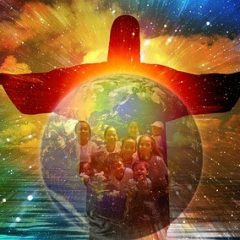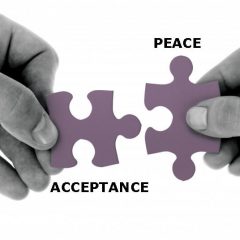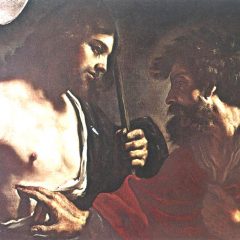peace
Peace In The Middle Of A Storm

Feast Of The Holy Family 2023
Deacon Tom Vert
Preached: Dec. 31, 2023
There can be peace in the middle of the storm!
It is well documented in tornadoes of even the highest wind speed, that the center of the storm is quiet and calm, even though everything around it is going crazy!
Sometimes, we might see life like this, if we watch CBC or CNN news each day we hear of wars in the Middle East and the Ukraine, wildfires, drought, flooding; high inflation, the price of food and housing, and season of viruses – Covid, flu, RSV.
This storm of constant negative news battering our lives each and every day can be overwhelming, if we think that we are alone, and our only job is to survive.
And yet, when reflecting on the gospel reading today, I think this thought could have been on the minds of Mary and Joseph!
We sometimes think life was perfect for the Holy Family – all dream like, like our statues and stained glass and paintings of the Holy Family.
They are great role models or mentors in the faith life, not because they are perfect, but instead because they endured the storms of life and thrived in their faith, their joy, in love and with peace.
What did they really endure? How about:
- Mary as a pregnant teenage who was not yet married and the judgement, she would
have received from the local community. - There were living in a land occupied by the Romans with strict rules on how they were to live.
- Travelling 100km from Nazareth to Bethlehem on a donkey when Mary was 9 months
pregnant. - Giving birth in a stable with barn animals, no bed, no relatives, no friends and only strangers to help.
- Having to leave Bethlehem as refugees when Jesus was around 2 months old to escape Herod and go 200km to Egypt, leaving Joseph’s carpentry business in Nazareth.
- And later, Joseph dying and leaving Mary a widow before Jesus was even 30 years old and finally of course Jesus unfairly being crucified before his mother’s eyes as the crowds denied him and sent him to his death.
You can be sure that during a few of these events, Mary and Joseph must have said: “How do we endure during these storms?”
And they would have focused on their relationship with God, put themselves in His hands to follow the journey of life that God had asked them to live as parents of Jesus.
I think sometimes that we all believe that what is going on now is not normal…but what is normal? Normal really is accepting the unpredictability of this world. To accept that each day a new challenge may come, and yet, with a close personal relationship with God, we can not only endure but shine forth God’s love.
As we sang in the psalm today –“Happy are those who revere, honor, worship God, and walk on His path, in His ways.”
We are happy and thankful, not because everything is going perfectly, but instead because we know that we do not walk alone, we walk with our God by our side!
We rely on God no matter what comes, and peace will be with us, and we don’t worry about our actions controlling outcomes, but knowing that God will be acting in our lives and those around us to bring forth His plan.
But how do we do this? How do we walk in His ways? What are the daily actions we are to follow?
St. Paul tells the Colossians and tells us the answer: put on the virtues of the Christian life, and tap into the fruits of the Holy Spirit in our lives! He tells us in the 2 nd reading that we are God’s chosen ones, and He has made us holy and beloved!
As God’s chosen ones we are called to have:
- Heartfelt compassion and kindness – which means to have consideration of other’s situations with love and understanding and feet ready to move to help when called.
- We are to have gentleness and patience bearing with one another – we are to fully accept people for who they are, their weaknesses and faults and flaws, and allow them worth and space in our lives.
- We are to forgive as God forgives us. How many times has God forgiven us and taken us back in life? This same perpetual forgiveness will allow us to forgive 70×7 also!
- And of course, on top of all of this, wrapped in our lives, encompassing all, we are to put on love! As St. Paul told the Colossians and the Corinthians, love conquers all and is the greatest of all virtues.
- And finally, when we have asked God to come to us in this way, we feel the peace of “shalom” – the peace knowing that God is in command, and we are not. The peace in knowing that we have one who loves us unconditionally, whatever may come in life or how much we stumble on the spiritual journey.
- With all of this knowledge of God’s incredible love for us, we will be truly thankful and sing with joy to the Lord in our hearts!
- We know that God has accomplished all, our job is only to accept it and be thankful – you just have to enjoy it, you don’t have to make it happen!
This is truly the lesson of the Holy Family!
They lived in a world of war, sickness, poverty and stress and yet the tapped into God’s virtues despite the incredible challenges they faced in life.
We need to remember that Mary and Joseph accepted God’s plan; they didn’t come up with it! May we remember the Holy Family in our times of trouble, remember His promises and we will know that:
There can be peace in the middle of the storm!
Righteousness And Justice
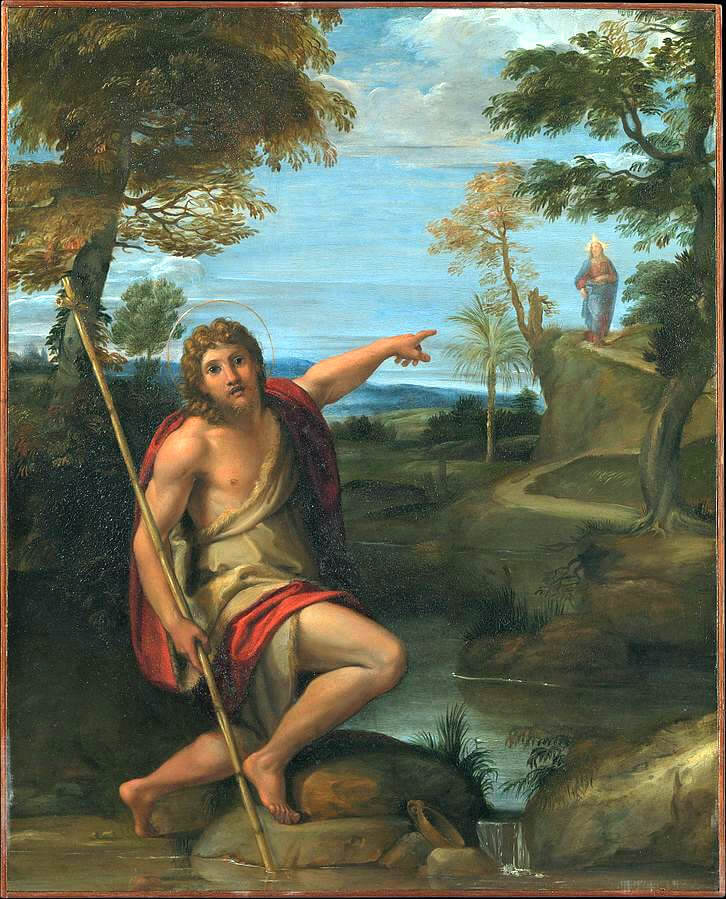
2nd Sunday Of Advent
Deacon Tom Vert
Preached: December 4, 2022
“Blessed are they that hunger and thirst for righteousness, they will be satisfied.”
This famous line from the Sermon on the Mount is the focus of today’s readings that talk about a dream of a future of justice and peace.
Righteousness is a key word in both the Old and New Testaments that means “actively doing the will of God”.
It means that persons who hunger and thirst for righteousness are not those who just focus on being personally holy, and not those who dream of a better future, but instead those who actively try and make the world a better place in the place where they are planted.
A great example is the Baptist preacher Martin Luther King who said in his famous speech:
“I have a dream that my four little children will one day live in a nation where they will not be judged by the color of their skin but by the content of their character.
I have a dream that one day every valley shall be exalted, every hill and mountain shall be made low, the rough places will be made plain, and the crooked places will be made straight, and the glory of the Lord shall be revealed, and all flesh shall see it together. This is our hope!”
But he did not just talk about a dream, he actively marched and met and fought for justice and was rewarded with the passage of the Civil Rights Act in 1964 and the Voting Rights Act in 1965, which changes the lives of millions of African Americans.
He also reminded us that “the arc of the moral universe is long, but it bends toward justice.” Therefore, change takes a long time, but with persistence it does happen.
But another leader cautioned that “the arc bends toward justice, but it only bends toward justice because people pull it towards justice. It doesn’t happen on its own.”
This is the challenge of the readings today!
If as we sing in the psalm “justice shall flourish and fullness of peace forever”, it is because we are sent by Christ through our baptism to bring the kingdom of God to the world and plant the seeds of hope, joy and love each day, each hour, and each minute of our lives!
In the first reading today, the prophet Isaiah foreshadows the kingdom of God and Christ’s coming and what life could be like if all were Christ-like.
We hear:
“Then the wolf shall be a guest of the lamb,
and the leopard shall lie down with the kid, etc.”
And I was thinking that if Isaiah were here today in 2022, maybe he would write it slightly different this way:
- Then the countries at war would make peace and prosperity their goals.
- The Israelites and Palestinians shall drink coffee quietly together and speak of their families.
- The Catholics, Protestants, Anglicans, and Coptic’s shall worship together in one place.
- All shall have a goal of protecting our environment in the best way they can.
- Our religion will be inclusive for all the weak, tired and needy and not exclusive to the holy.
- The homeless will have the help they need and a safe shelter in the storms.
- The disparity between rich and poor will be smaller and there will be no need for food banks.
- People will spend more time listening and less time arguing.
A huge challenge no doubt, but the same focus as 3000 years ago when this was written: a dream to have a just and righteous world to live in.
Justice, as we know, is a quality ascribed to God; that He is just and right; but it also means to focus on social justice to help the poor, the needy, and the oppressed; God wants us to live morally and ethically.
The good news is that when God’s will is done, “peace” is the result, peace that is beyond our understanding
The world we live in is not just or right yet – but we need to be a part of the solution!
I love listening to the song from John Lennon every Christmas season “and so this is Christmas, and what have you done”?
He wrote it as a reminder that we are all personally accountable to be part of the solution and to bring forth a better world.
“Another year older and what have we done? Is a question as an Advent prayer to reflect upon.
It is a similar challenge to what John the Baptist says to the people on the river banks of the Jordan in the gospel today:
“Produce good fruit as evidence of your repentance.”
To repent as we know means to turn back toward God; but it is always followed with God demanding our actions to do better.
To produce good fruit by planting seeds of love, joy, peace, patience, kindness, generosity, faithfulness, and gentleness.
It is not easy and can be tiring, but Pope Francis reminds us “To all people of good will who are working for social justice: never tire of working for a more just world”.
I would like to finish today’s homily with a quote from the famous Methodist preacher John Wesley (yes I am being very ecumenical today) who said this over 300 years ago”
“Do all the good you can,
By all the means you can,
in all the ways you can,
in all the places you can,
at all the times you can,
to all the people you can,
as long as you can.”
And as you do this during the next week remember this:
“Blessed are they that hunger and thirst for righteousness, they will be satisfied.”
Let’s Work For A New World – The Kingdom Of God

2nd Sunday of Easter (Divine Mercy Sunday)
Fr. Mark Gatto
Preached: April 24, 2022
Imagine a different world. Are you able to imagine a different world? A world without war. Without poverty. Without racism. Without anyone abandoned. A world with justice. A world where human dignity is respected. A world of freedom.
Jesus came to proclaim a new world, the kingdom of God. A world different from so much of how humanity has been. Jesus is the way to this new world, the kingdom of God.
It is for this reason that Jesus was crucified. The leaders of the Empire, the religious leaders, those in position of authority and power, they did not want a new way. They wanted to keep things the same because it benefited them. They were fine with the world as it was and they did not care about the poor, the marginalized, the weak. But, the Kingdom of God is not satisfied with a world where a few do well and others are abandoned or left on the side.
In our world today, the dictators, the powerful, the rich, still do not want things to change. They oppose anyone trying to bring about a more just world, a world in which we care for creation, a world in which there is peace rather than a military industrial complex.
After the Resurrection, the apostles, the disciples, including the women disciples like Mary Magdalene, discovered this new hope, this new vision. We see them living this new way in the Acts of the Apostles. They believed it was possible for something better. They were able to dream about a world that reflects the Kingdom of God. God’s dream became their dream and they had the courage and hope to work for it.
You and me today. The more united to Jesus we are the more that we will see the world as God sees it. We are to work to bring the Kingdom of God into our world. Begin in our own life, our own family, our own parish, our own community. Jesus is with us speaking those words in our midst, “Peace be with you.” Why did the Risen Lord Jesus speak those words? Because the disciples were not at peace. They were disturbed, discouraged, without hope. Jesus knows that first they needed peace. Then they would be able to go out with courage to be instruments of peace.
St. Teresa of Avila taught what she said was the most dangerous prayer. She said we should pray this way. “Give us whatever is good for us!” We should pray, “Give me whatever is good for me!” This is a dangerous prayer. We will not usually get what we want or what we think is good for us. We will often get something very unexpected. Only in the long view will see how it was good for us, something leading to our holiness.
As disciples of Jesus, as we experience the Resurrection, we are able to imagine a different world. A world that reflects the Kingdom of God. Work for that world in our own lives and communities. Never believe that it is not possible to make this world reflect the Kingdom of God more closely. Death is not the end, the resurrection shows us the victory over death. Even the most difficult things in this life can be changed and new life is possible.
Begin by praying that dangerous prayer, if you dare, that St. Teresa taught, “Give me whatever is good for me!”
Acceptance: The Key To Spiritual Growth And Peace
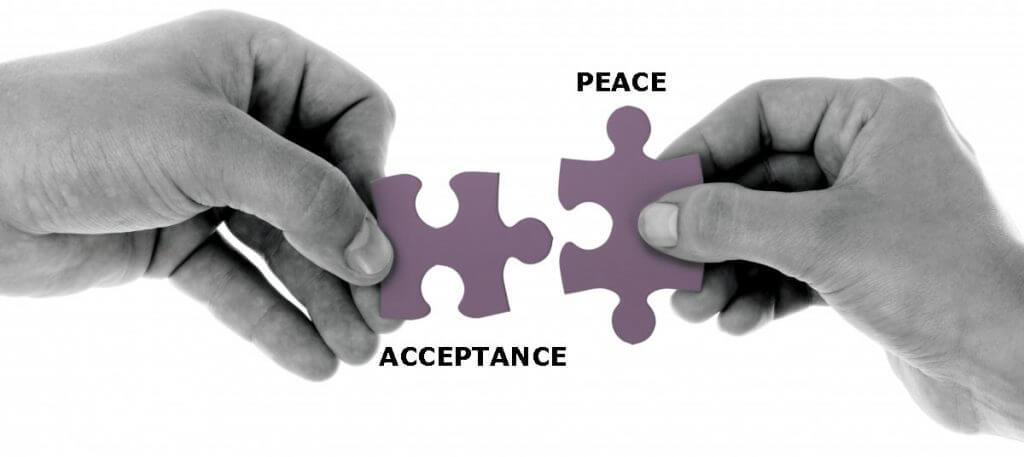
4th Sunday of Lent
Deacon Tom Vert
Preached: March 27, 2022
“Once you accept that fact, you will feel more peaceful”
I remember about 20 years ago when I had my first promotion at Dofasco and after a couple of months I was really stressed.
We had safety issues, environmental challenges, production breakdowns, high costs and the list went on and on and on.
I was working hard and long hours trying to resolve all these things in our department but could never seem to get ahead.
One day, I was having lunch with a friend who was had been a leader for much longer than I, but didn’t seem to get so anxious and worried, and I asked him how he did it.
He said to me “picture your list of problems or challenges as a stack of books maybe 40 high. If you work extremely hard, you might get the pile down to 30, and if you work not so hard it might climb to 50. But the secret is that the pile will never go down to zero!”
“Once you accept that fact, you will feel more peaceful”
And he was absolutely right!
The word and theme of acceptance is a key to understanding the readings today and for growth and peace in our spiritual life.
We see in the gospel today, the famous prodigal son, that we have heard about so many times and we see two examples of acceptance.
First, there is a key phrase in the middle of the reading: “when he came to himself” or in other translations “coming to his senses”; we see he finally realizes and accepts his situation and decides to ask for forgiveness from his father and start his life anew.
And then secondly, we see the beautiful image of the father running to his son while he is still far off down the road “was filled with compassion; he ran and put his arms around him and kissed him.” The father showed his son that he was accepted back no matter what he did – no questions were asked, no judgements were given, no lectures; just love and acceptance.
Acceptance is a very powerful word in the spiritual life as we will see in three key ways:
- To accept that we aren’t perfect and that we need God in our lives
-
- Acceptance is defined as living in the present moment, allowing the situation to be what it is and recognize it
- There is a powerful quote on acceptance in the Alcoholics Anonymous organization that says this: “acceptance is the answer to my problems today. I can find no serenity until I accept that person, place, thing or situation as being exactly the way it is supposed to be and I need to concentrate not so much on what needs to be changed in the world as on what needs to be changed in me and my attitudes.” Many times what causes us stress is we don’t have things the way we want or think they should be and this quote reminds us that the world doesn’t have to change for us, but we have to change our perception and accept the present state instead.
- This recognition of ourselves as imperfect people, is something we recognize at mass when we say: “I confess to almighty God and to you, my brothers and sisters, that I have greatly sinned, in my thoughts and in my words, in what I have done and in what I have failed to do,” It is accepting who we are and to humbly move forward, and knowing this, we then invite God in to help us!
- To accept that we are children of God despite our faults and failings
- Pope Francis says this: “God’s love is free. He asks for nothing in return; all he wants is for his love to be accepted.”
- God does not force us, blackmail us, push us, or twist our arms to love Him. He gives us the choice, and we are called to choose to accept that love each day, and each moment. We may not feel we are worthy of that love, but God loves us anyway.
- We have a baptism today, and Olivia will be accepted into our community of faith as a child of God! Now, we may not remember our own baptisms, but we can each claim this same title of “child of God” for that is what we are!
- When we accept this fact, we can praise God like we did in the psalm “I will bless the Lord at all times; My soul makes its boast in the Lord; O magnify the Lord with me and let us exalt his name together.” The entire psalm is positive, thankful, joyful, for what God has done for us and because we know we are accepted and loved.
- To accept that others aren’t perfect either, and we accept them for who they are, and where they are at
- When we can accept God’s love, and accept that we are children of God, then we can accept others who are the same!
- St Frances de Sales says this so beautifully: “It is a great part of our holiness to bear with one another in our imperfections. For there is no better way of showing our own love to our neighbour”
- As St. Paul says in the 2nd reading: “we are a new creation, and we are ambassadors for Christ!” Knowing that we are accepted and loved, we can tell others without any sense of judgement or being better than others.
- This is the fault of the older brother. He could not accept or forgive, but only judge and be bitter and this is not the Christian life.
- Jesus accepted and ate and welcomed sinners and tax collectors, modelling what behavior we are to have.
So how do we mirror this example in our daily lives? How do we accept ourselves as weak, imperfect Christians and make the world a better place?
- As parents we are called to accept our children’s faults and failings and love them unconditionally.
- As immigrants (which 99% of our families are), we are called to accept our role in the treatment of the indigenous people of this land in truth and work to be reconciled with them.
- As citizens, we are called to accept new refugees, immigrants, and migrants with open arms and help them enjoy our great country free from persecution, fear, poverty and lack of opportunity.
- As fellow human beings, we are called to accept those who identify as LGBTQ as Pope Francis told their parents “God loves your children as they are” and “the church loves your children as they are because they are children of God.” Therefore, when we fly the rainbow flag at our schools, it is because we accept all of our brothers and sisters as children of God.
- As friends and family, we are called to accept that we may carry grudges and hurts ourselves and knowing this, we try and reach out and build bridges of peace and love with one another.
We are not perfect, and yet we are still loved more than we can ever deserve by our God!
“Once you accept that fact, you will feel more peaceful”
Be An Instrument Of Mercy, Peace And Healing
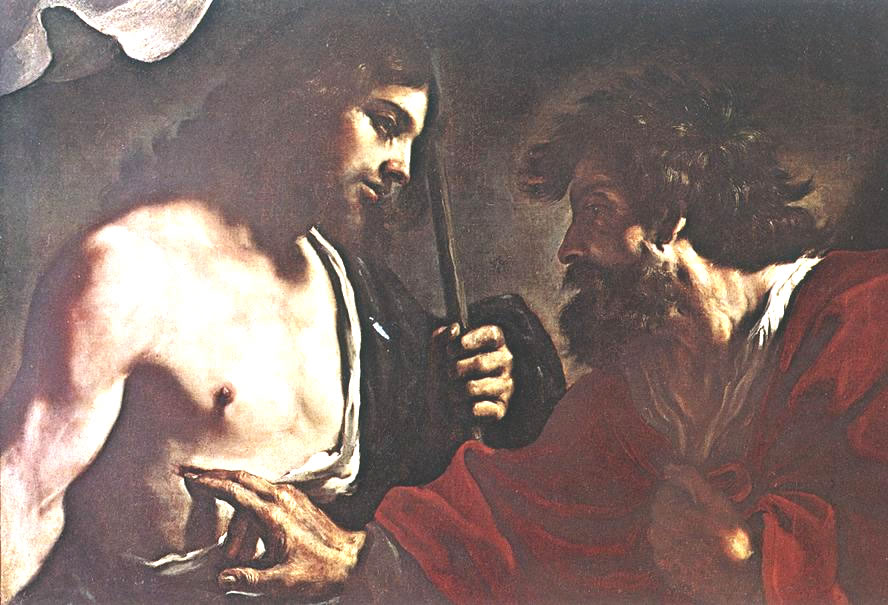
Second Sunday of Easter – Year C
Fr. Mark Gatto
Date Preached: April 28, 2019
Like Thomas, we come to Mass each week so that we can touch Jesus and believe. The first appearance of the Risen Lord Jesus, Thomas is not there with the others and so misses Jesus and does not believe. The following week, Thomas is there with the others and so he touches Jesus and he believes. He makes that great profession of faith, “My Lord and my God.”
We come to Mass each week so that we can touch Jesus and believe. But, our faith calls us to act.
When the Risen Lord Jesus appears to the Apostles, he says to them, “As the Father has sent me, so I send you.” We come to Mass to touch Jesus and have faith. But, then we are sent out by Jesus into the world.
What are we sent to do?
During Easter we listen to the Acts of the Apostles which tells of the experiences of the first believers after the death and resurrection of Jesus. Today, we heard that people were laying the sick in the street hoping that Peter’s shadow might fall on them. The Christian community, the early Church, was an instrument of healing. It made the mercy and healing of Jesus visible and concrete.
Jesus sends us out to be instruments of healing, instruments of peace, to bring God’s mercy into our world.
This past Easter Sunday morning, we saw a terrible act of terrorism in Sri Lanka. Several suicide bombings, some in Catholic Churches, killing hundreds and injuring more. The images remind us of the division, the hatred, the brokenness within the world.
Even within our families we find divisions, jealousies, even hatred. It is clear that our world, our communities, our families, are in need of healing, in need of peace, in need of mercy.
This Second Sunday of Easter is now known as Divine Mercy Sunday. It is a reminder of the Mercy of God. Reminder of our need for God’s mercy. Reminder of the power of forgiveness.
Forgiveness is essential, it is the power of God, forgiveness is necessary for there to be peace in our world, between religions, in the church, within families, in our own hearts.
Like Thomas, we come to this Mass each week to touch the Risen Lord Jesus and have our faith affirmed. Jesus then sends us out to be instruments of peace, instruments of healing, to bring God’s mercy into our world and into our families. Our world, our families, each of us, need healing, peace, mercy.
Each of us is called to be an instrument of peace, an instrument of God’s mercy. Even one act of forgiveness makes the world a better place. Have the courage to reject hatred, violence, division when our world offers you that path. Have the courage instead to embrace the mercy and forgiveness of God. Have the courage to be people and instruments of peace.


